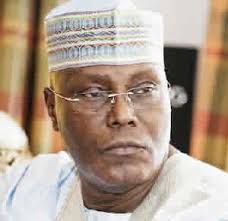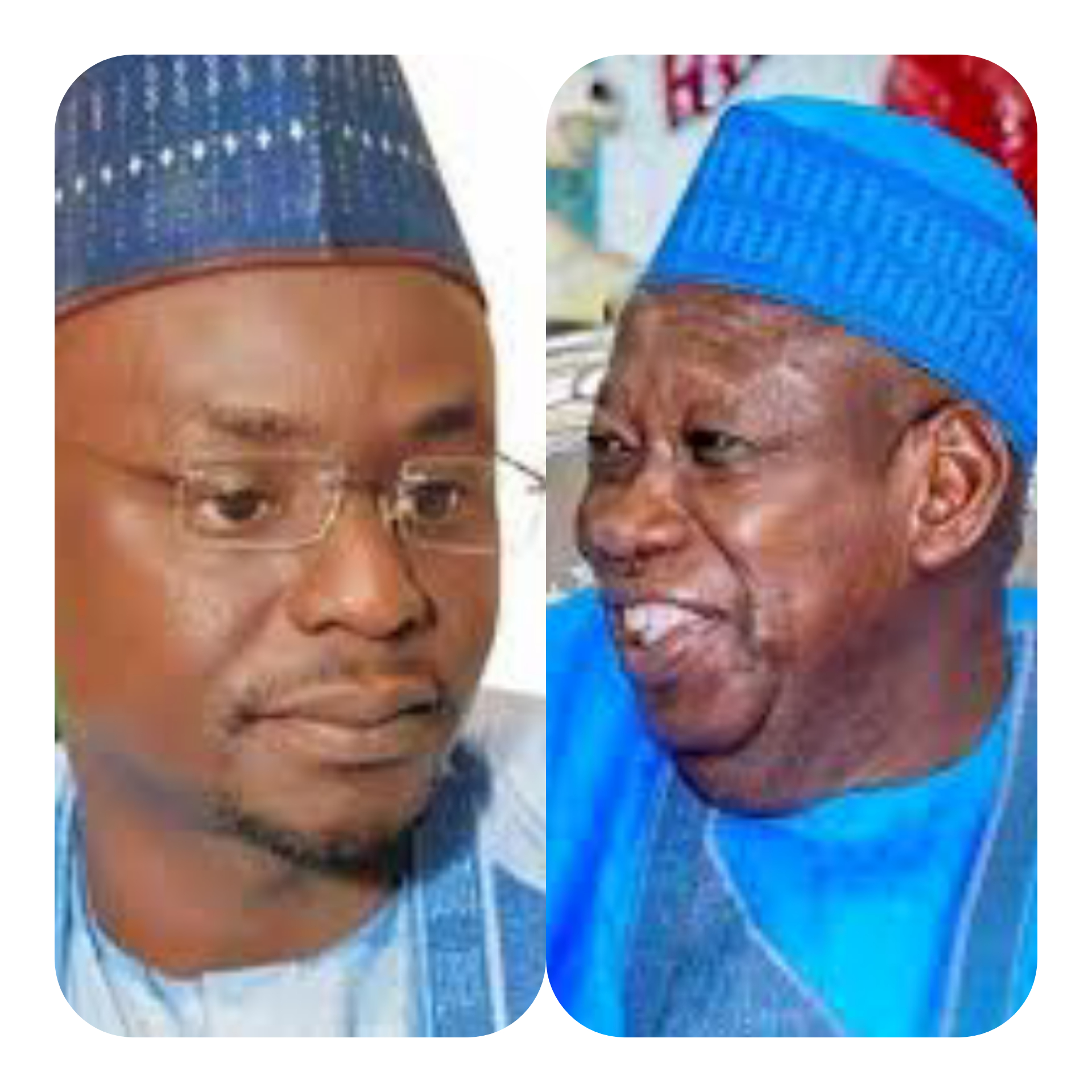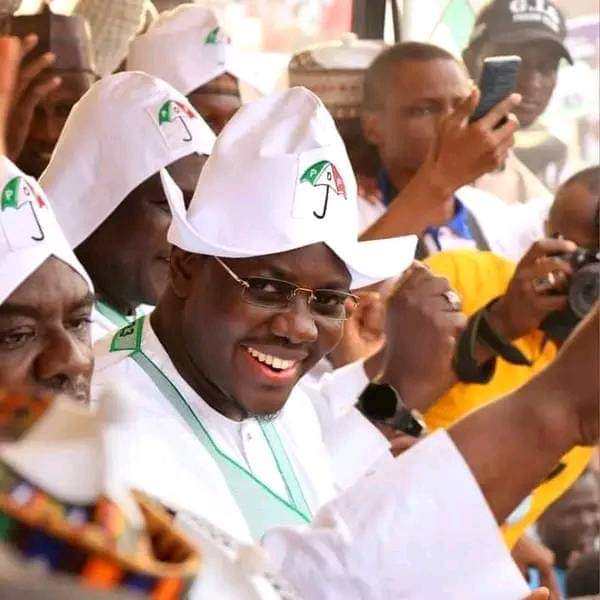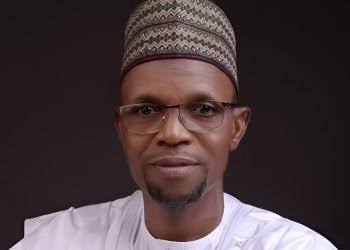By Tunde Olusunle
Ever since I trained my mind to follow the unravelling of Nigeria’s sociopolitics through martial and civilian governance, I’ve found no deputy who has been as harried and harangued as Atiku Abubakar. I have highlighted the word “civilian” in the preceding sentence because much of what we have witnessed particularly in Nigeria’s last two general elections have merely parodied genuine expression of popular franchise and real democracy. Scholars in political science, sociology, history, literature, public affairs, have work to do in interrogating with every rigour, whether the elections of 2019 and 2023, can pass as being representative of the expression of free will and popular democracy.
Discerning and objective Nigerians are not alone in the caustic denunciation of the wasteful thievery of our resources by roguish electoral umpire, the Independent National Electoral Commission, (INEC), in the name of elections. The grand charade and phenomenal putrefaction labelled general elections in the 2019 and 2023 cycles, as the lowest points of our return to democracy. International observers of various hues have also been unsparing and consistent in tearing down the specie of electoral robberies they witnessed in Nigeria in borrowed robes of elections.

Back to the matter of the mistreatment of Nigerians who served in the positions of Number Two citizens, Atiku holds the record of being the most wrongfully vilified, soiled and sullied occupants of the office. Beginning from Joseph Akinwale Wey; through Olusegun Obasanjo; Shehu Musa Yar’Adua; Alex Ekwueme; Tunde Idiagbon; Ebitu Ukiwe; Augustus Aikhomu; Oladipo Diya and Mike Okhai Akhigbe, never have the travails of Number Two citizen’s ever come close to the heckling and harassment Atiku faced as Vice President. Not even Goodluck Jonathan, Namadi Sambo and Yemi Osinbajo, his successors thus far. Ukiwe voluntarily left the office of Chief of General Staff, (CGS) to military president Ibrahim Babangida, one year into their regime in 1986, and retired from military service.
Ukiwe, a fine breed, an unusually principled officer and gentleman, who as the political second-in-command, refused to be relegated behind his juniors in the order of military hierarchies. He fought on the side of the unrecognised Republic of Biafra during the 30-month long Nigerian Civil War, 1967 to 1970. Following the reintegration of soldiers of the Nigerian army who fought on the side of the “rebel forces,” his “seniority” was not restored as it should have been. This placed him at some disadvantage in the seniority-uncompromising military services. Diya, who passed on recently was military deputy to Sani Abacha. He was framed for a coup attempt and sentenced to death by a military tribunal in 1997. He survived by divine intervention, following the providential demise of his principal and potential nemesis, and the ascendancy of Abdulsalam Abubakar. As we shall find in our discourse, the experiences of Ukiwe and Diya, under regimental rule, are completely different from that of Atiku.
Atiku Abubakar paired Olusegun Obasanjo after the latter’s victory at the presidential primaries of the Peoples’ Democratic Party, (PDP), February 1999, held in Jos, Plateau State. He had already acquired the reputation of a nascent political force in the nation’s unravelling politics, and was governor-elect of Adamawa State awaiting inauguration. Six years before then, Atiku put up a very strong showing at the presidential preliminaries of the defunct Social Democratic Party, (SDP), which held in the same “Tin City.” Jos assumed that longstanding alias because of the substantial mining activities that took place in Nigeria’s primordial economy. He posted third behind Moshood Abiola and Baba Gana Kingibe, and had to be prevailed upon by his political leader at the time, Shehu Yar’Adua, to step down so Abiola could win the fiesty contest. Atiku had therefore built substantial cross-national political capital, even at that time.
As a public officer who rose to a level which can be equated with the contemporary designation of a “Deputy Comptroller-General,” (DCG) of the Nigerian Customs Service, (NCS), Atiku was posted around the country quite robustly during his eventful two-decade stint on the job. He made friends and nurtured relationships within the period many of which remain till date. His marriage to Titi Atiku-Abubakar who is Yoruba, spontaneously defined Atiku a Fulani, as pan-Nigerian and cosmopolitan. These broad tentacles he developed early in his public service life, played in his favour at the beginning of the fourth republic. He was the natural rallying point of the cream of PDP governors who unanimously deferred to him because of his experience and charisma. It will be safe therefore to say that he leveraged these relationships for the electoral success of the Obasanjo/Atiku ticket. The duo coasted home at the 1999 presidential election, despite Obasanjo’s inability to win in any of the six Yoruba states, his sociocultural homeland.
Everything looked good and chummy between Atiku and his boss until the twilight of their second term in office. Atiku had, back in 2002, rebuffed suggestions that he should contest the presidential primary against Obasanjo who was expected to adopt the Mandela prototype. This would have meant Obasanjo giving up the presidency after one term and handing over to his deputy. This was the same way Nelson Mandela, icon of the anti-apartheid struggle in South Africa, gave way to Thabo Mbeki, his deputy. Towards the end of Obasanjo’s second and constitutionally final term, however, Obasanjo allegedly began to entertain suggestions to the effect that he could indeed run for a third term! Part of the plot, purportedly, was to induce the parliament materially, to pull this off. Sums ranging between N40 million and N50 million per Member of the House of Representatives and per Senator, respectively, were reportedly gifted the lawmakers respectively, as part of the plot. Principal officers in both strata of the legislature presumably received more.
Atiku, a veteran of the democratic struggle would not sit by and watch the desecration of the nation’s hard-earned democracy. He pulled the strings in the national assembly, reminding parliamentarians about the potential damage Obasanjo’s scheme could visit on Nigeria’s fledgling democracy. Nigeria which has stridently opposed political sit-tightism elsewhere in Africa, should not suddenly become a model for what is wrong. What morality shall we preach to Robert Mugabe, Paul Biya, Yoweri Museveni, Obiang Nguema Mbasogo of Zimbabwe, Cameroun, Uganda, Equatorial Guinea, respectively, if we trod the same path of illegal and unconstitutional perpetuation in office? Atiku won the backstage battle and the parliament rejected Obasanjo’s third term proposition. Thus began the coordinated scheme to marginalise, undermine, decimate and denigrate Atiku’s person and office, by loyalists of the president.
There were orchestrated attempts to remove Atiku, a sitting vice president from office illegally; violate and withdraw the immunity conferred on him by the Constitution, and to arrest him unlawfully and prosecute him. The Independent National Electoral Commission, (INEC), on the directives of the presidency, disqualified Atiku from contesting elections in 2007; the Code of Conduct Bureau, (CCB) as instigated by the powers-that-be commenced proceedings against him, while the PDP, the party he help to birth and groom, expelled him outrightly. Such was the multifaceted buffeting and opprobrium Atiku endured in his service to democracy. Such was his simulated predicament in service to nation.
I was on Obasanjo’s personal staff within the period and witness to these happenings, by the way. I was repeatedly traumatised each time I visited the vice president’s wing of the presidential villa, to discover that one more friend or colleague had been sacked on presidential orders, or one more office padlocked. For me, the height of it all was watching the withdrawal of all the official vehicles in the fleet of the vice president. Such mean-spirited pettiness. I was moved to tears because the very same Atiku being so mindlessly stripped and savaged, was a serial and multiple benefactor of many people across the world. Ownership of fleets of classy automobiles were the least of Atiku’s needs. Stories about his kindness and generosity in various ways, evoke the envy of people not close enough to him to be potential beneficiaries.
Atiku has never been a rofo-rofo exponent though. He has always subscribed to due process and rule of law. He earned a diploma in law at the Ahmadu Bello University, (ABU), Zaria decades earlier as a young quester for knowledge. He thus believes in the efficacy of unbiased, uncoloured legal interrogation. Atiku challenged all seven infringements on his constitutional rights within the ambience of democratic governance in Nigeria. He pursued all the suits to the topmost judiciary in the land, the Supreme Court. He won all seven litigations. Dahiru Musdapher, GCON, a former Chief Justice of Nigeria, (CJN), applauded the single-minded gusto with which Atiku pursued every matter for the advancement of democracy and the rule of law. Musdapher wrote the “Foreword” to Landmark Constitutional Law Cases In Nigeria: 2004 – 2007: The Atiku Abubakar Cases, edited by Maxwell Gidado, SAN, and Chudi N Ojukwu, and published in 2013. He commended “the depth of research work done by the authors as ably demonstrated by the number of authoritative decisions of the Court of Appeal and the Supreme Court.”
Nigeria’s nascent democracy has been entrenched in several ways courtesy of Atiku’s courage and subscription to legal processes. First, it is not possible for a president to remove or sack his deputy, under any circumstance whatsoever. They are elected on a joint ticket and will together remain on that same ticket until the constitutional terminus of their administration. Secondly, the provision at Section 308 of the nation’s statutes, unequivocally and expressly restrain a Nigerian president from setting up an inquiry to probe or investigate the vice president, in any way. Thirdly, INEC cannot unilaterally disqualify a candidate from participation in an election. The jurisdiction for this rests squarely with the judiciary. Atiku’s interrogations should also, have assisted in promoting internal party democracy across political parties, as against extant practice of mindless vending of tickets to contest various political positions by the leaderships of political parties. His exertions on this cause should have impacted incidents of pre-election litigations. Unfortunately, in instances, political parties are yet to wean themselves of high-handedness and the impunity of imposition of candidates, serially violating the rule on consensus building internal democracy.
Institutional memory in our system, sadly, is so disastrously poor if not nonexistent. And this is the root of our collective failings and failures as a people. Contemporary beneficiaries of the comforts and conveniences provided by landmark judicial pronouncements in the past, do need to take a step back from time to time, to ruminate about how their paths were so paved. Atiku Abubakar was that bulwark who gave his yesterday to enable today’s democratic ascent. Atiku Abubakar it was who braved the odds in the specific instances he so diligently interrogated in the process of democratic deepening.
Tunde Olusunle, PhD, poet, journalist, scholar and author, is a Member of the Nigerian Guild of Editors, (NGE)




